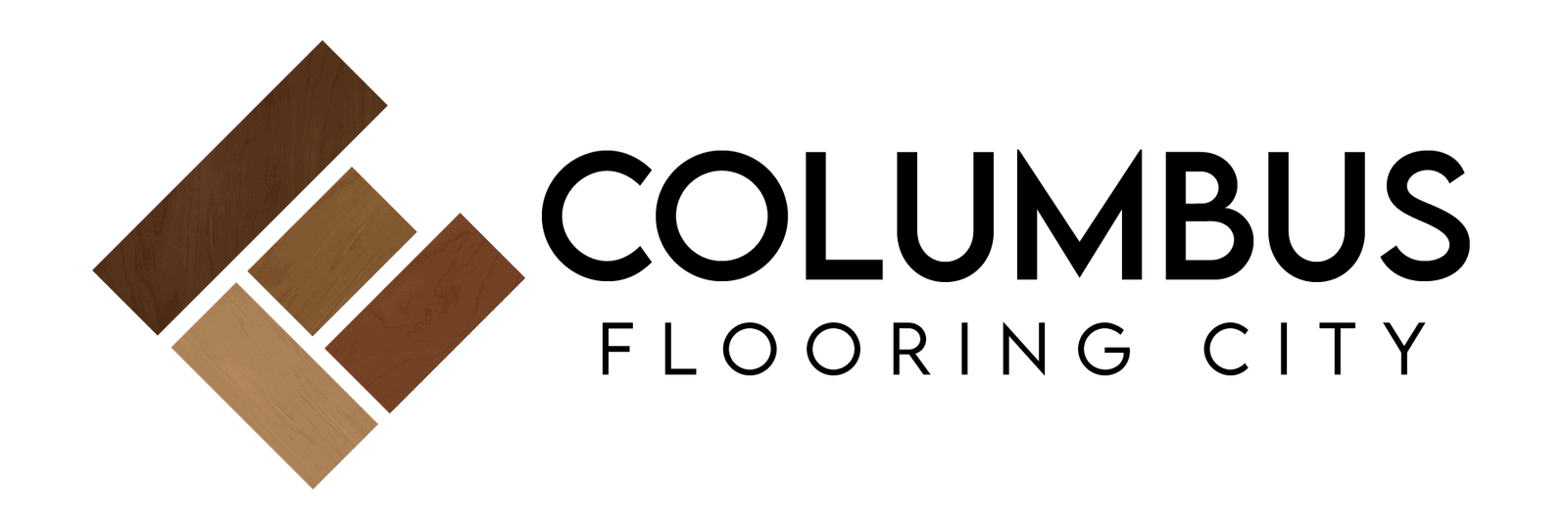Perhaps! Vinyl and Linoleum both are resilient flooring types. Both of the flooring types hold some mutual characteristics owned by a resilient material. Due to this property, most of the people use the name interchangeably. Although it’s pretty accurate, hold on. Vinyl and Linoleum have a large number of differences.
Vinyl flooring belongs to the new flooring class. Due to many designs and textures and availability in various vinyl flooring, it is one of the most favourite flooring options. It works best not only for residential places but also for commercial establishments as well. Apart from designs vinyl flooring is easy to clean, DIY friendly and highly durable.
learn about Quality Guide For Vinyl Flooring What Is The Best?
Side by side linoleum is one of those floorings that represent an old class. This flooring is made up of linseed oil. Construction material is natural, so the flooring remained an affordable and durable option for decades. However, now a day’s Linoleum is a cheap flooring material, but its use is restricted to schools and hospitals.
Indeed, both the flooring materials work best at their places. The differences lie in cost, installation, water resistance, heat resistance, acoustics, level of comfort and much more.
Compare all the characteristics before your final purchase so that you can select the best one for your place. Let’s read all the aspects in detail so that you can differentiate between the two.
Aesthetic Appeal (Linoleum)
Linoleum, then again, is a robust and colorfast material in which the shading and designs are imprinted on a superficial level and are dimensionally present through the whole thickness of the material.
This restricts the plan choices somewhat, yet it implies that the deck can wear out without blurring. Old Linoleum has a similar tone and example as the day it was introduced.
Aesthetic Appeal (Vinyl)
Vinyl tile flooring comes in implausible designs and patterns. However, wood-style is one of the popular choices among homeowners. The luxury vinyl floor provides appealing aesthetics, just like wood. As compared to hardwood vinyl tiles have low purchasing cost. To maintain an extraordinary visual display, least maintenance is required.
If you have a low budget and want an aesthetically beautiful foundation, consider vinyl tiles as a superior choice. Not only in the form of wood vinyl also comes in the form of abstract and natural stone-like patterns. LVT fits in a broad range of unique and elegant aesthetics.
Moisture Resistance (Linoleum)
No doubt Linoleum has good resistance against moisture. However, its moisture resistance ability linoleum is not entirely impervious to water. This material needs periodic sealing. In case of flooding, this flooring will get ruined. Excessive humidity will affect the Linoleum s and sheets badly.
Moisture Resistance (Vinyl)
Vinyl planks are long planks, just like wood. Vinyl planks also have a good resistance against moisture but relatively more liable to get damaged if exposed for long periods. You can use vinyl planks in all areas, either commercial or residential. In terms of moisture resistance, both the types inclined towards the beneficial flooring.
Read more Common Types of Vinyl Flooring: Luxury Vinyl Sheet vs. Luxury Vinyl Tile
Heat Resistance (Linoleum)
Linoleum flooring is not prone to heat and damage. Flooring Linoleum does not develop any curls. Interaction of any hot appliances and iron does not damage the linoleum flooring.
Heat Resistance (Vinyl)
In the case of vinyl flooring heat insulation is more appropriate. Vinyl planks and vinyl tiles do not get much affected by heat. Apart from good insulation ,durability of vinyl makes it workable in hot prone areas.
Care And Cleaning (Linoleum)
Linoleum is easy to clean just like the vinyl flooring. It has been a flooring that is an excellent choice for schools, hospitals, public properties. Just clean or sweep it or vacuum it. You can use mild detergents for removing stains. You can also use some kind of cleaning agents or solutions for linoleum flooring. Some harsh detergents can also affect the surface.
| Vinyl Flooring pros | Vinyl flooring Cons | Linoleum flooring pros | Linoleum flooring cons |
| Easy installation | Negative environmental impact | Made from natural products | Susceptible to damage |
| Highly durable | Aesthetic appeal varies with time. | Good antistatic properties | Maintenance is required |
| Resilient | No effect on resale value | Heat insulation | Not a DIY project |
| Comfortable | Subfloor preparation is required. | Comfortable underfoot | Considered as cheap |
| Moisture resistant | Considered as a cheap flooring material | Ensures anti-microbial properties | Not considered a good flooring option these days. |
| Affordable | you cannot repair once they damage. | Long life span | Limited usage |
| Long life span | Release toxins after installation | Consistent colours and designs | No resale value in real estate |
Care And Cleaning (Vinyl)
Luxury vinyl planks are easy to clean. Life proof vinyl tiles own a gleaming look. Nevertheless, you can follow these cleaning tips.
- Regular mopping
- Damp cloth cleaning
- Don’t use abrasive chemicals.
- Always apply branded mild solutions.
Buying Cost (Linoleum)
Linoleum flooring is a slightly expensive material. Sheet linoleum costs $2-$2.5 per square feet. Linoleum s are $3.5 to $5 per square feet. Cost may vary with designs, style and patterns.
Buying Cost (Vinyl)
Luxury vinyl planks or vinyl tiles are also affordable. It ranges in between $2 to $4 per square feet. It can lead up to $7 per square feet. Cost varies depending on the quality. However, it’s a floating floor and does not require any professional help.
Resale Value (Linoleum)
Barely any imminent homebuyers can differentiate among vinyl and linoleum flooring initially, even though somewhat less well from unadulterated plan position.
Since it doesn’t have the assortment of shadings and examples found in vinyl flooring, be that as it may, the green idea of Linoleum as a selling point on the off chance that it is called attention to homebuyers who have great ecological mindfulness.
Resale Value (Vinyl)
Vinyl flooring is a top notch choice, undoubtedly highly durable. It affects the resale value but not up to a great extent. Luxury vinyl is the best option. It is often more preferable than laminate and vinyl sheets.
Life Span (Linoleum)
As compared to vinyl flooring linoleum flooring has a useful life span of almost 20-40 years. Linoleum floors fade gradually and show wreathing effects over time. The patina may look right to some while awkward to others.
Life Span (Vinyl)
vinyl is no doubt more durable. It has more thickness. Extensive wear layers and protective backing on luxury vinyl make life expectancy generally between 20-25 years. For a better life span, take proper caring of your floor.
Sizes (Linoleum)
Linoleum sheets are available in the form of 6-12 foot rolls. Linoleum planks are much similar to the luxury vinyl planks. It is almost 48 inches in length and 4-6 inches wide.
Sizes (Vinyl)
There is not any kind of particular damage from luxury vinyl flooring. Either its sheet or plank depends on your primary preference. Larger sheets will help you in having less no seams as compared to planks. However, the installation of the planks is DIY friendly.
Installation (Linoleum)
Hosting linoleum flooring can be fundamentally the same as introducing vinyl, yet sheet linoleum can be considerably more challenging to work with than sheet vinyl; specialists quite often present it. Sheets are, to some degree harder to cut than vinyl, yet a sharp Linoleum cutter edge works typically.
Linoleum flooring likewise comes in Linoleum s and boards that are simpler for DIY establishment; they may utilize a “click-lock” joining technique that permits the Linoleum s or boards to skim over the subfloor with no blocks of cement, much the way that extravagance vinyl or cover boards are introduced.
Installation (Vinyl)
Luxury vinyl floors don’t require any challenging installation process. Feet are DIY install. Vinyl floors have a click-lock system, and you can install it as soon as they arrive home. No professional consultation is required. Click lock strategy provides excellent stability and a robust and rigid core that is not easily affected. Besides other facts, vinyl has a good absorption ability that contributes to a quiet and peaceful space. Black vinyl tiles provide a cosy and premium look.
Maintenance (Linoleum)
As far as maintenance of Linoleum is concerned, it is quite delicate. It cannot withstand heavy, harsh chemicals. As compared to vinyl, this material cannot hold moisture from damp mopping. It requires heavy sealing once or twice a year. This flooring is quite fussy, just like hardwood. Undoubtedly it’s tricky material.
Maintenance (Vinyl)
Luxury vinyl tiles, unlike hardwood, do not require re-sanding from time to time. All thanks to vinyl construction or makeup. Wear layers, incredibly waterproof vinyl layers, make it highly versatile. Without any exaggeration, vinyl floors are highly functional.
These floors do not require any extensive maintenance. As compared to hardwood vinyl tiles are exceptionally easy to clean and maintain. This extraordinary property has made it a practical choice among homeowners. Sweeping and mopping once a day is enough to hold the gloss.
Soundproofing (Linoleum)
Linoleum flooring is certainly soft material, but it has good properties for absorbing annoying sounds. However, resilient in nature, Linoleum is quieter and does not produce sounds.
Soundproofing (Vinyl)
In terms of sounds though, both regular and Adhesive Vinyl board floors produce a similar sound when strolled on. Vinyl boards highlight different layers and are a generally peaceful decision for any room, particularly contrasted with tile floors.
The turmoil is resolved more by the development of the material than by the establishment cycle. For calm floors, search for Vinyl flooring with sound absorption housing layers.
Both the adhesives and regular vinyl have common characteristics in terms of acoustics and sound production.
Comfort (Linoleum)
Linoleum is a soft material and comfortable underfoot. Linoleum is famous for providing an incredible feeling of comfort.
Comfort (Vinyl)
Top-quality luxury vinyl flooring is best for walking. Life proof vinyl floors have a soft texture and promote a comfortable walk. Health and wellbeing is a prime priority. You do not feel exhausted even after standing for a more extended period. Luxury vinyl tiles area was esthetically appealing and equally comfortable.
Conclusion
Linoleum flooring is made of natural compounds such as linseed oil, rosin and wood-based materials. This one of the bare linoleum floors is flexible and resilient on the same side.
Linoleum is an attractive choice for the place where hardwood floors will not work efficiently; on the other hand; vinyl flooring is made of pure polyvinyl chloride material.
These are some of the differences between the two types. Highly durable yet hold high-end variation. Let’s read the article so that you can easily gravitate towards the particular choice.
| Aspects | Vinyl floors | Linoleum floors |
| Environmental effect | Not environmentally friendly. Toxic compound are used and released | No synthetic products are used |
| Buying cost | $1-$10 per square for tiles $7-$45 per square foot for sheet | $23-$50 per square yard for sheets and $4-$10 per square foot of tiles |
| Types | Available in the form of planks, sheets and tiles | Sheets and tiles |
| Installation | Glued down or click-lock installation | Adhesives based installation |
| Moisture resistance | Good waterproofing availability | Not highly resistance requires additional sealing. |
| Care and cleaning | No extensive cleaning | Easy to clean |
| Durability | Depending on type can be used for 20-25 years. | May last for 40 years. |
Frequently Asked Questions
1. Is There A Difference Between Linoleum And Vinyl Flooring?
There are a lot of differences between the two types. One one of the main difference between the two is the construction material. Linoleum flooring is made up of linseed oils or any other similar material. However, on the other hand, vinyl flooring is made of synthetic material, also called polyvinyl chloride.
2. Is It Fine To Put Linoleum Over Linoleum Floor?
Yes, it’s possible to put Linoleum over Linoleum and vinyl over vinyl. Keep in mind that the old floor must be in good condition; otherwise your flooring will show off the dents and imperfection of subfloor. You can also use subfloor leveller for making a flawless floor.
3. What Are The Disadvantages Of Vinyl Flooring?
Although vinyl floors hold many useful properties, there are certain disadvantages as well.
Not repairable
Not environmental friendly
Release toxic materials
Develop scratches on placing heavy objects
4. How to Clean Vinyl Flooring?
Vinyl flooring is easy to clean and maintain.
Clean with a mop.
Vinyl floors are easy to clean with the help of damp cloths.
Never apply harsh chemicals on the vinyl floor.
Abrasive detergents will damage the look.
5. Does Linoleum Scratch Easily?
Perhaps Linoleum is a good flooring option. Undoubtedly durable, but if placed in high traffic areas, Linoleum is susceptible to scratches and dents.


